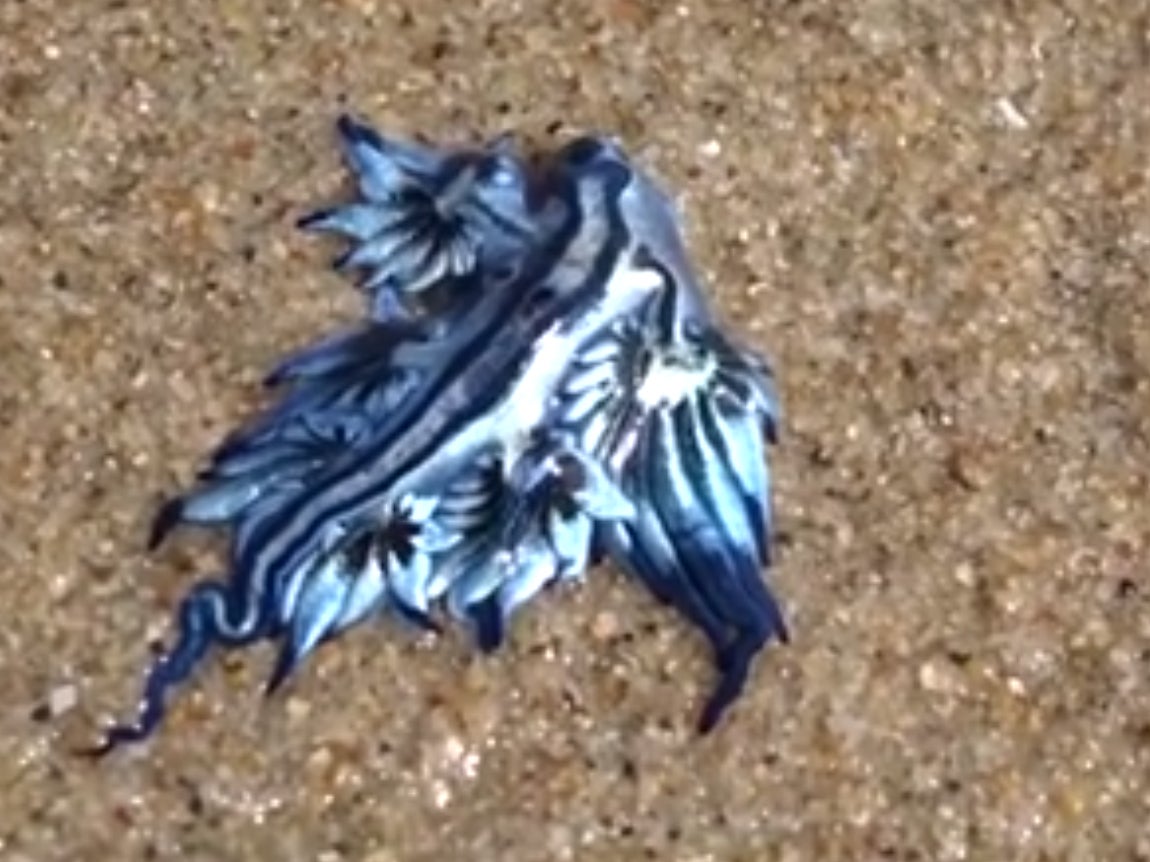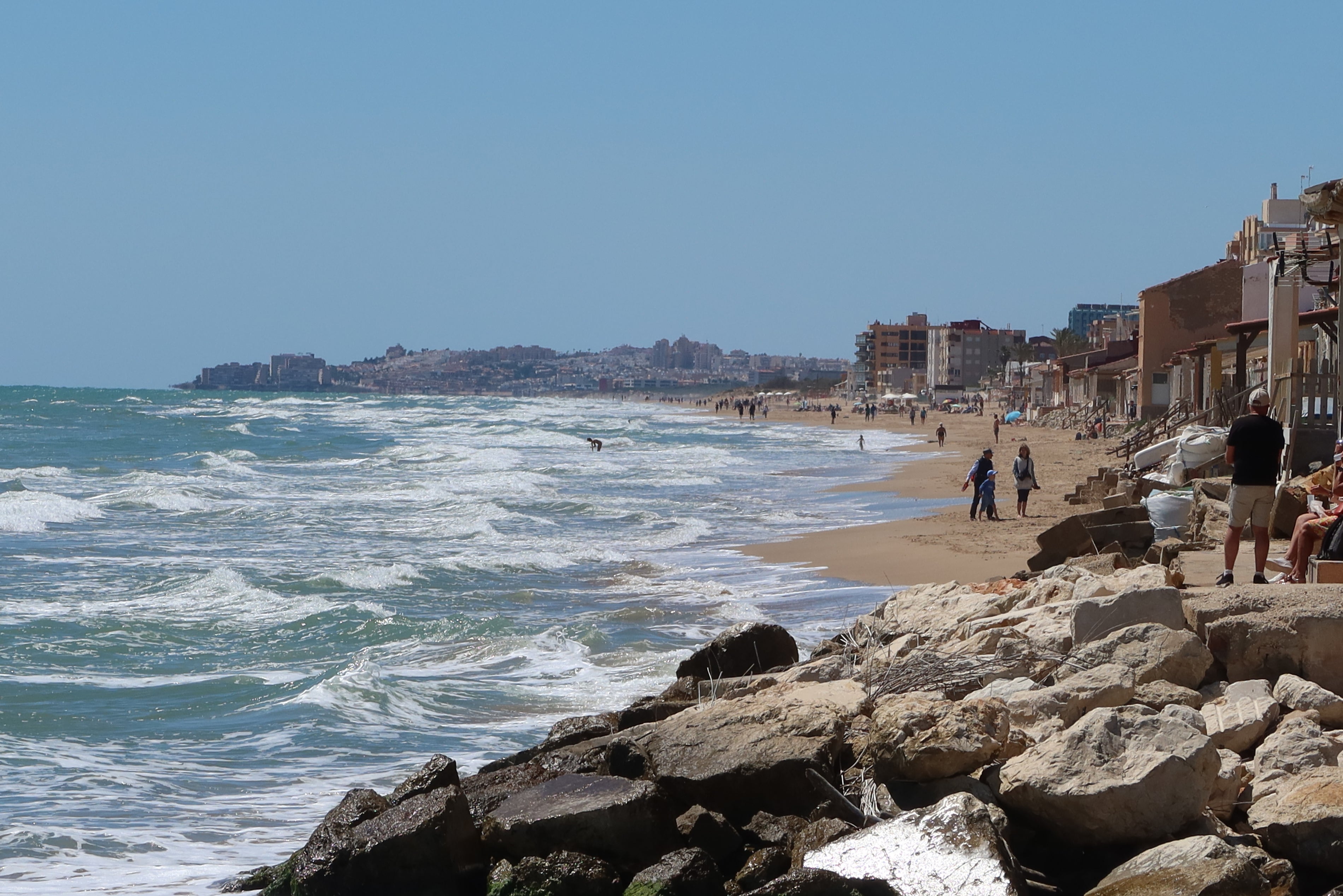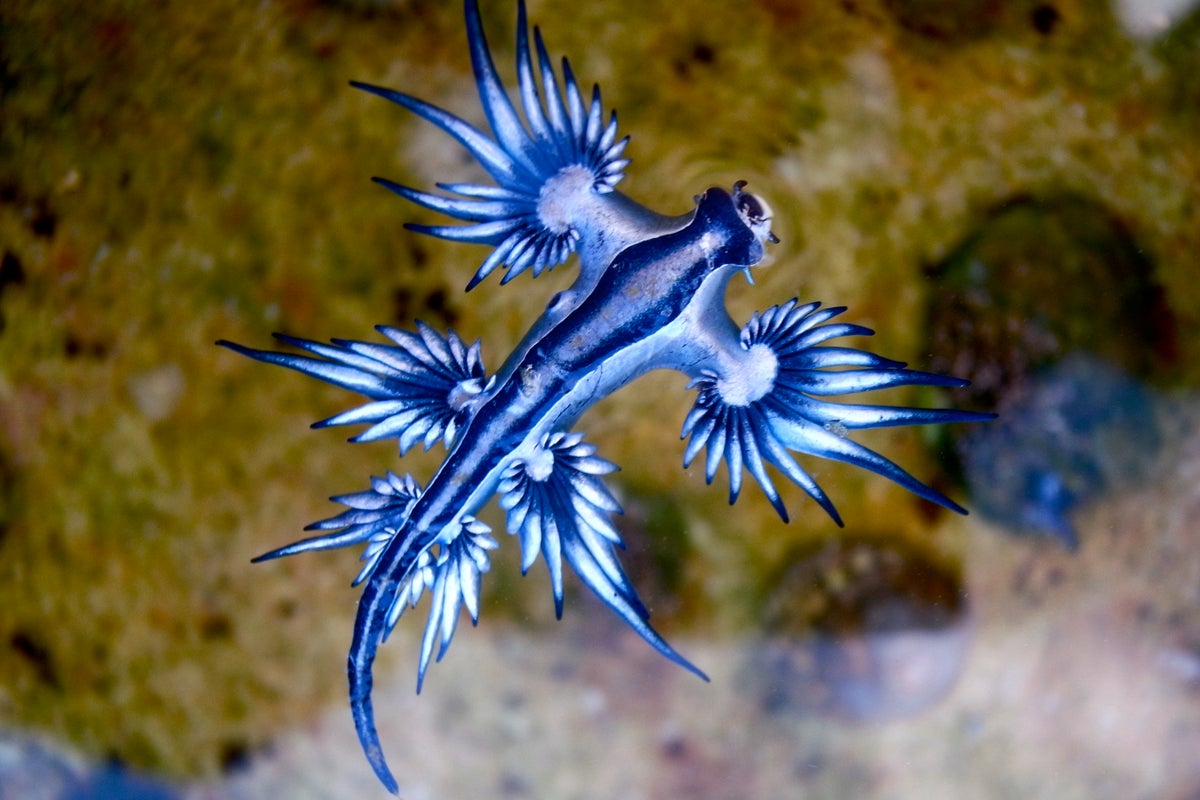Your support helps us to tell the story
From reproductive rights to climate change to Big Tech, The Independent is on the ground when the story is developing. Whether it’s investigating the financials of Elon Musk’s pro-Trump PAC or producing our latest documentary, ‘The A Word’, which shines a light on the American women fighting for reproductive rights, we know how important it is to parse out the facts from the messaging.
At such a critical moment in US history, we need reporters on the ground. Your donation allows us to keep sending journalists to speak to both sides of the story.
The Independent is trusted by Americans across the entire political spectrum. And unlike many other quality news outlets, we choose not to lock Americans out of our reporting and analysis with paywalls. We believe quality journalism should be available to everyone, paid for by those who can afford it.
Your support makes all the difference.Read more
Tourists were banned from swimming in the ocean in Spain after two toxic tropical sea slugs were found in the water.
The beaches of Guardamar del Segura, in Alicante, were closed this week after two blue dragon sea slugs were discovered.
The creatures, which are around four centimetres long and bright blue in colour, are known for their painful sting which can cause health issues in humans.
Guardamar del Segur’s council stopped tourists and locals from swimming in the water to prevent any health risks.
Swimmers had been warned not to touch the creatures, even with gloves on, and to alert the authorities if they spotted one.

open image in gallery
The ‘dragon-like’ sea slug was seen on the Australian Gold Coast. (The creatures, which are around four centimetres long and bright blue in colour, are known for their painful sting which can cause health issues in humans.)
Their sting can cause a series of health issues for humans including nausea, pain and vomiting.
The region’s mayor, José Luis Sáez, wrote on social media on Wednesday: “Red flag on the beaches of Guardamar [with] SWIMMING PROHIBITED after the appearance at Playa Vivers of two specimens of Glaucus atlanticus, known as Blue Dragon.”
He said that a “preventive device” has been put into action to detect possible specimens washed away by the sea currents, while local authorities were keeping an eye on the situation.
Swimmers were advised that if they got itchy, they should rinse with salt water and go to the emergency room or health centre.

open image in gallery
Guardamar del Segur’s council stopped tourists and locals from swimming in the water to prevent any health risks. (Getty Images)
At around Thursday lunchtime, he updated residents and said there was now a yellow flag on the beaches, meaning people could swim again.
He said: “Municipal services, police and emergency services, will keep an eye on the situation as it develops.”
Despite their small size, blue dragons eat much larger prey such as the Portuguese man o’ war jellyfish, attacking and feeding off these venomous creatures.
The creatures have light and dark blue stripes, with stinging tendrils that fan out like wings and drift where ocean currents and wind takes them, buoyed by gas bubbles in their stomachs.
The animals are usually found in tropical climates, so had likely been dragged to the area by strong currents.

